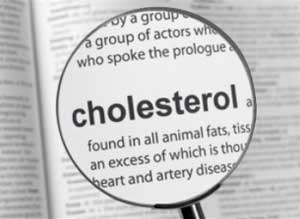- Home
- Editorial
- News
- Practice Guidelines
- Anesthesiology Guidelines
- Cancer Guidelines
- Cardiac Sciences Guidelines
- Critical Care Guidelines
- Dentistry Guidelines
- Dermatology Guidelines
- Diabetes and Endo Guidelines
- Diagnostics Guidelines
- ENT Guidelines
- Featured Practice Guidelines
- Gastroenterology Guidelines
- Geriatrics Guidelines
- Medicine Guidelines
- Nephrology Guidelines
- Neurosciences Guidelines
- Obs and Gynae Guidelines
- Ophthalmology Guidelines
- Orthopaedics Guidelines
- Paediatrics Guidelines
- Psychiatry Guidelines
- Pulmonology Guidelines
- Radiology Guidelines
- Surgery Guidelines
- Urology Guidelines
How cholesterol contributes to age-related neuron impairment

A new study in mice sheds light on why neurons of older individuals are less able to repair their fatty, protective sheaths; excess cholesterol may be overburdening certain immune cells, resulting in lingering inflammation that interferes with the natural repair process. The results hint that drugs being developed to promote cholesterol clearance in humans may also be good candidates for neuro-regenerative therapies.
Ludovico Cantuti-Castelvetri et al. first created similarly-sized lesions in thick nerve fibers of young and old mice, confirming that the latter group has a relatively poor capacity to repair myelin, which layers over neurons and protects them. Phagocytes are cells that protect the body by ingesting harmful particles and debris, including pieces of myelin that remain after nerves are damaged.
A closer look at the lesions in the older mice revealed that phagocytes were lingering at these sites and, curiously, had "internal organs" called lysosomes that were overburdened with an excess of cholesterol crystals. Cholesterol cannot be broken down by phagocytes and must be transported out of the cell membrane.
The authors hypothesized that the accumulation of cholesterol may overwhelm the cholesterol transport capacity of phagocytes, which they confirmed. When the researchers studied mice with a key gene responsible for cholesterol transport disabled, even young mice experienced reduced myelin repair abilities - an effect that was restored by applying a compound that helps increase cholesterol flow and solubility across cell membranes. As well, a compound known to boost cholesterol flow across the cell membrane was found to improve lesion regeneration in older mice.
For more details click on the link: http://dx.doi.org/10.1126/science.aan4183

Disclaimer: This site is primarily intended for healthcare professionals. Any content/information on this website does not replace the advice of medical and/or health professionals and should not be construed as medical/diagnostic advice/endorsement or prescription. Use of this site is subject to our terms of use, privacy policy, advertisement policy. © 2020 Minerva Medical Treatment Pvt Ltd